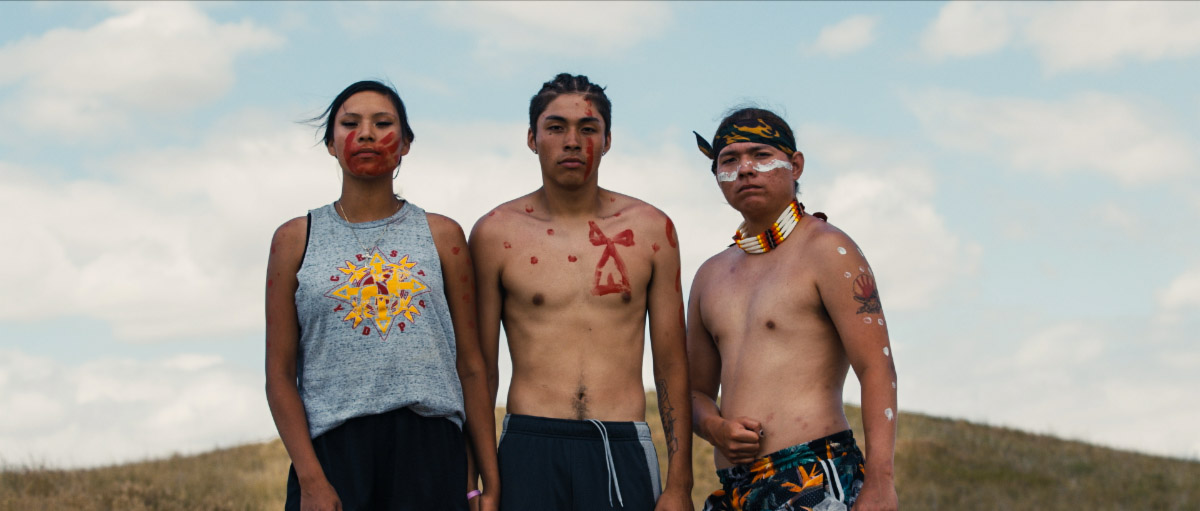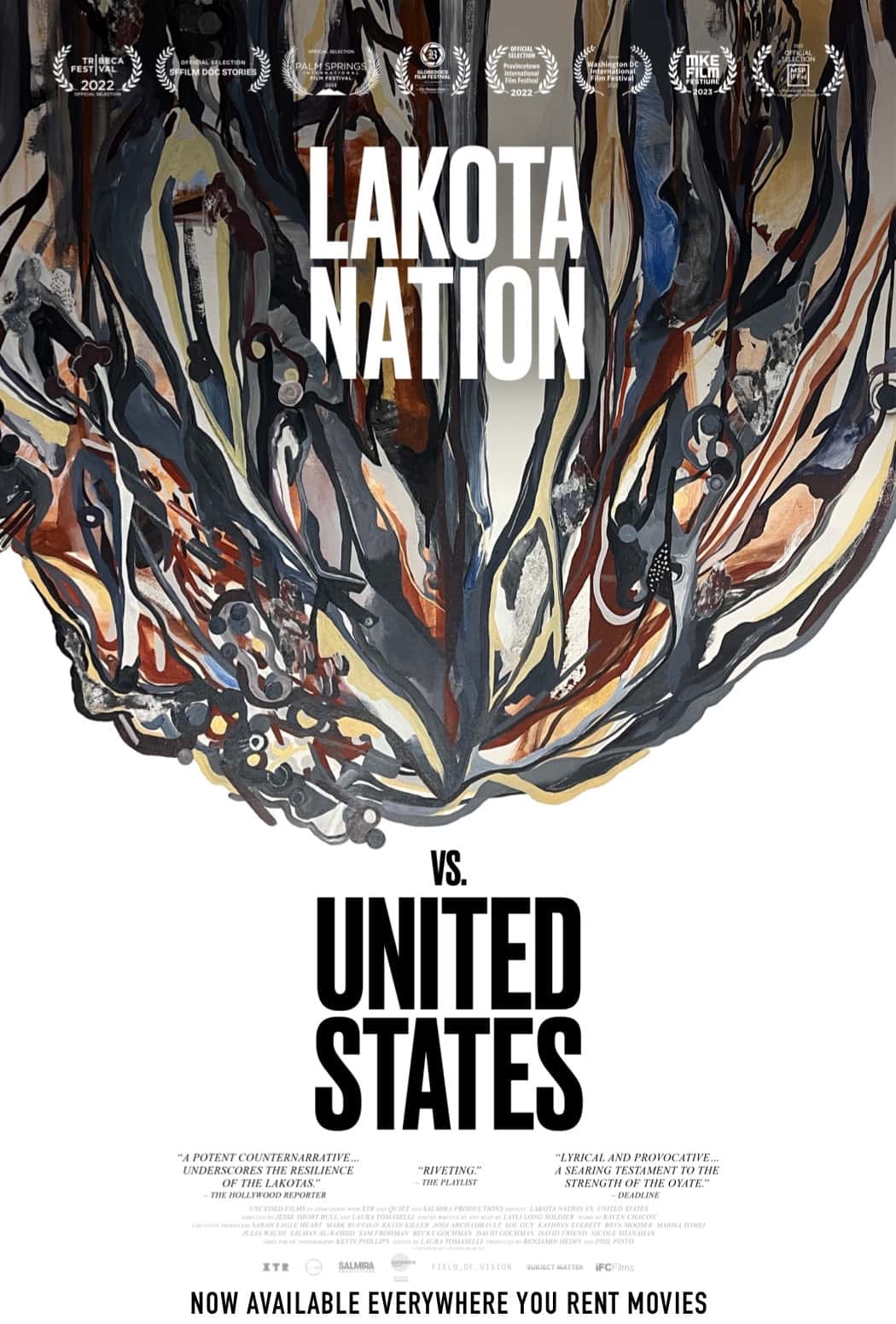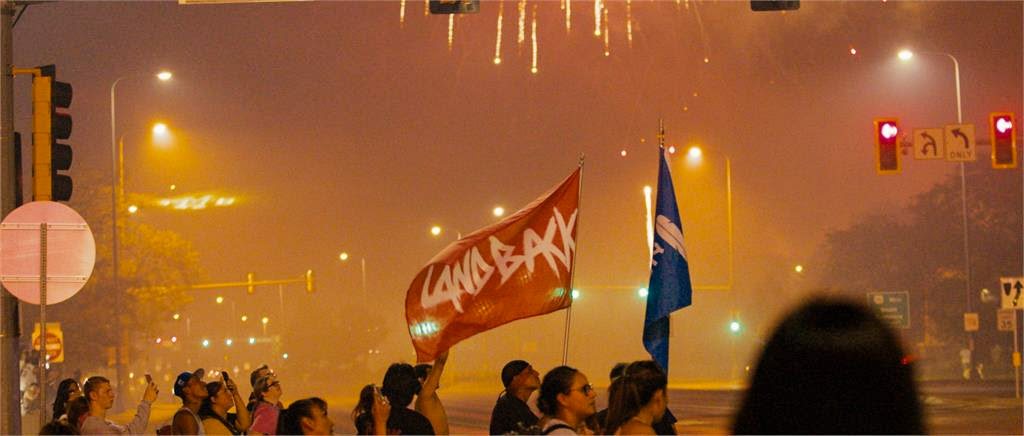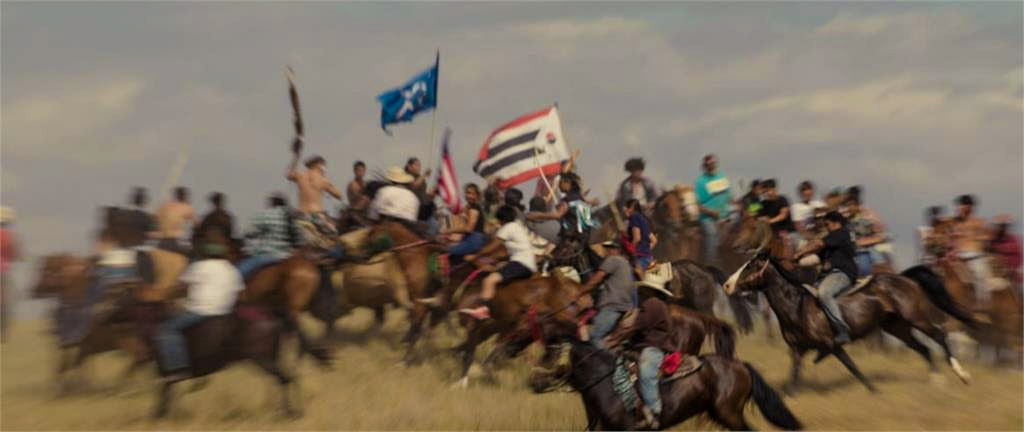Indianz.Com > News > People’s World: Film shares story of theft of Black Hills from Lakota Nation
‘Lakota Nation vs. United States’
Acclaimed Indigenous film screened at Nashville’s Belcourt Theater
Tuesday, September 26, 2023
People's World
In the United States government’s long record of broken treaties, land theft, and genocide, the taking of the Black Hills ranks as one of the most disgraceful examples of imperial aggression against an Indigenous people.
This is not just a historical episode; it is ongoing to this very day. The magnificently illuminated and stunningly stellar documentary film Lakota Nation vs. United States tells the story. It was screened at the Belcourt Theater in Nashville from Septenber 1 to 6.
The film was picked up for the Belcourt by Allison Inman, Director of Education and Engagements at the theater, who saw it at the Milwaukee Film Festival in April of this year.
Some information on the theater is in order first of all. The Belcourt is a unique Nashville institution with a historic past and deep community ties. It is a non-profit cultural facility dedicated to presenting the most notable of independent, documentary, world, repertory, and classic cinema. The Belcourt believes in “the power of film.”

Albert Bender is a Cherokee activist, historian, political columnist, and freelance reporter for Native and Non-Native publications. He is currently writing a legal treatise on Native American sovereignty and working on a book on the war crimes committed by the U.S. against the Maya people in the Guatemalan civil war He is a consulting attorney on Indigenous sovereignty, land restoration, and Indian Child Welfare Act (ICWA) issues and a former staff attorney with Legal Services of Eastern Oklahoma (LSEO) in Muskogee, Oklahoma.
This article originally appeared on People's World. It is published under a Creative Commons license.
Search
Filed Under
Tags
More Headlines
Native America Calling: Tribes vie for better access to traditional plants
Senate committee schedules confirmation hearing for Interior nominee
Fact Sheet: Department of Health and Human Services to undergo ‘dramatic restructuring’
Press Release: Department of Health and Human Services to undergo ‘dramatic restructuring’
Native America Calling: The new Social Security reality for Native elders
Montana Free Press: Hip-hop artist Foreshadow celebrates latest release
Cronkite News: Bill creates alert system for missing and murdered relatives
Bureau of Indian Affairs approves HEARTH Act regulations for Mohegan Tribe
House Subcommittee on Indian and Insular Affairs sets field hearing for self-determination anniversary
Native America Calling: Sometimes, COVID doesn’t go away
Native America Calling: The changing landscape for subsistence hunting and fishing
Press Release: AIHEC ‘deeply concerned’ about closure of Department of Education
Press Release: Oklahoma Indian Gaming Association weighs in on sports betting legislation
Press Release: Sen. Mike Rounds (R-South Dakota) calls for commission on crime in Indian Country
Press Release: Sen. Schatz (D-Hawaii) criticizes closure of Department of Education
More Headlines
Senate committee schedules confirmation hearing for Interior nominee
Fact Sheet: Department of Health and Human Services to undergo ‘dramatic restructuring’
Press Release: Department of Health and Human Services to undergo ‘dramatic restructuring’
Native America Calling: The new Social Security reality for Native elders
Montana Free Press: Hip-hop artist Foreshadow celebrates latest release
Cronkite News: Bill creates alert system for missing and murdered relatives
Bureau of Indian Affairs approves HEARTH Act regulations for Mohegan Tribe
House Subcommittee on Indian and Insular Affairs sets field hearing for self-determination anniversary
Native America Calling: Sometimes, COVID doesn’t go away
Native America Calling: The changing landscape for subsistence hunting and fishing
Press Release: AIHEC ‘deeply concerned’ about closure of Department of Education
Press Release: Oklahoma Indian Gaming Association weighs in on sports betting legislation
Press Release: Sen. Mike Rounds (R-South Dakota) calls for commission on crime in Indian Country
Press Release: Sen. Schatz (D-Hawaii) criticizes closure of Department of Education
More Headlines


